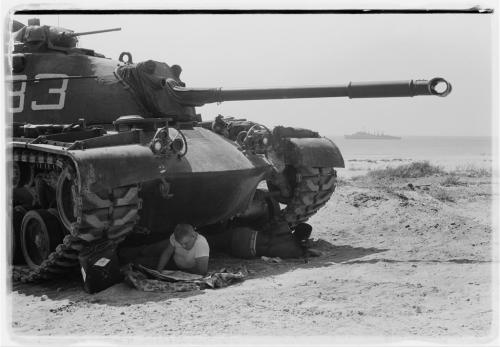Political and military engagement in the Middle East has for decades seemed an integral component of American foreign policy, as experts discussed at Brookings at an event on November 13. However, today, U.S. engagement in the Middle East is under intense scrutiny. According to experts, recent events like the muted U.S. response to the Iranian-orchestrated attacks on Saudi Arabia’s Aramco facilities, as well as the blunt withdrawal of American troops from Syria demonstrate the long-assumed commitment to the Middle East may no longer be the case. In order to understand how we got here, it is important to examine the beginnings of U.S. engagement in the region.
At the event, Senior Fellow Bruce Riedel and Senior Fellow in the Center for Middle East Policy and Deputy Director of Foreign Policy Suzanne Maloney discusses his newest book, “Beirut 1958.” The book examines the factors that contributed to President Dwight D. Eisenhower’s momentous decision in July 1958 to send U.S. Marines to the Middle East, focusing especially on the roles that political upheavals and influential individuals played in the buildup and eventual resolution of the crisis. Introducing the event, Senior Fellow Tamara Wittes reiterated the importance of examining past policy decisions and their results in order to inform decisions going forward.
Riedel provided an overview of events in the Middle East leading up to Eisenhower’s decision to launch Operation Blue Bat, and described the complex political landscape of the region at the time. Following his remarks, he and Maloney discussed in more detail the lessons that policymakers can take from examining this first U.S. military engagement in the Middle East. They noted the impact of ideologies, especially the oft-forgotten ideology of Arab nationalism that played such a defining role in the 20th century, as well as the implications of diminished U.S. involvement in the region today. They also grappled with the difficult line between patience and apathy in foreign policy decisionmaking. Riedel emphasized the importance of level-headedness when dealing with a tumultuous and unpredictable part of the world.
The Brookings Institution is committed to quality, independence, and impact.
We are supported by a diverse array of funders. In line with our values and policies, each Brookings publication represents the sole views of its author(s).






Commentary
Highlights: Experts discuss the first-ever US military intervention in the Middle East
November 21, 2019